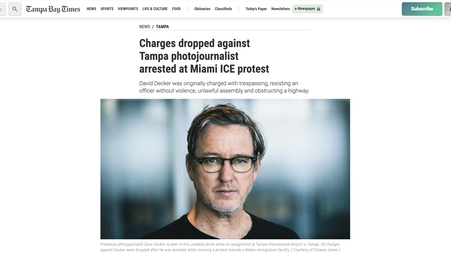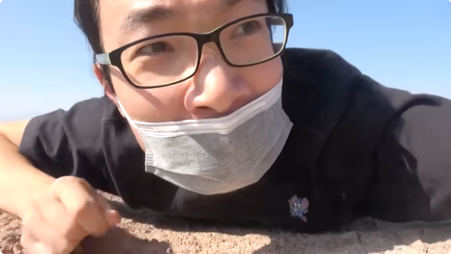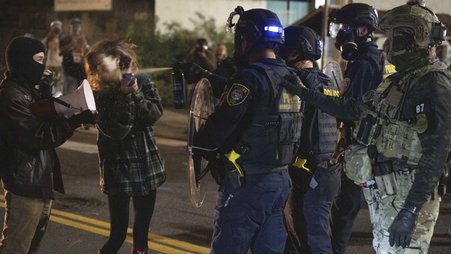
The Royal Mounted Canadian Police are preventing journalists from covering members of the Wet’suwet’en First Nation’s opposition to the construction of a natural gas pipeline that would run through British Columbia.
Members of the Wet’suwet’en First Nation—including the hereditary leaders—began running checkpoints that block access to the planned construction site of the Coastal GasLink LNG pipeline, which would transport natural gas to the coast of British Columbia. Some members of the the Wet’suwet’en First Nation are concerned that it could damage the watershed and threaten wildlife.
Indigenous opposition to the pipeline is an issue of huge public importance that has been covered by Canadian news outlets for years, including the CBC. But at Gidimt'en camp—one of the checkpoints restricting access without the consent of the hereditary leaders—Royal Canadian Mounted Police turned away numerous members of the press on Jan. 7. This included APTN News and a CBC TV crew from Vancouver.
APTN News reported that its reporters were informed by an officer that they were barred due to safety concerns, and if reporters tried to pass the checkpoint, they could be arrested and charged with obstruction.
Around the time that RCMP arrived at the checkpoint, several news outlets reported that the communication halted with journalists present at the camp. This reportedly included Jesse Winter and Perrin Grauer at The Star Vancouver, and the Twitter feeds of CBC reporter Chantelle Bellrichard and The Moose’s Sawyer Bogdan.
The Star deputy bureau chief Joanna Chiu tweeted that she had been informed that communications to the area had “been cut” due to a satellite issue. RCMP quickly denied that police had played any part in this lack of communications.
“It sounds like the RCMP is once again using every tactic that they can to bend the law as much as possible to prevent journalists from gaining access to sites,” said Tom Henheffer, vice president of Canadian Journalists for Free Expression (CJFE).
“This is a tactic that is very commonly employed and is very difficult to fight against in the moment because [police] know that when you’ve got a bunch of officers with guns telling people what they can and cannot do, it doesn’t necessarily matter whether the law is on the RCMP’s side or not – because it takes too long for a journalist to get a lawyer, go to court to get an order to allow them to get on to the site,” Henheffer said.
That same day on Jan. 7, RCMP arrested 14 people for allegedly violating a court injunction granting the pipeline company access. The Royal Police also created a "temporary exclusion zone,” which made the area off limits to all but members of the enforcement team.
Pipeline protests can be dangerous for both protesters—who face risks of arrest and physical violence for their political expression—and the press, who are attacked and arrested in large numbers for doing their jobs highlighting it.
Particularly when arrests are being made, media coverage serves a critical function that can help ensure law enforcement does not use excessive force, and if they do, journalists will be there to document it.
Media coverage has been critical in illuminating law enforcement treatment of pipeline resistance protesters across the United States. At Standing Rock in North Dakota, pipeline security forces—both public and private—attacked protesters with dogs, rubber bullets, tear gas, mace, compression grenades, and beanbag grounds.
Reporters and livestreamers at Standing Rock quickly documented these tactics, which quickly gained mainstream media attention and faced intense public backlash. The United Nations' special rapporteur on the rights of freedom of association and peaceful assembly called out the violence against protesters opposing the pipeline, and denounced the arrest conditions as “inhuman and degrading.”
Solidarity rallies are being organized across Canada and the United States in support of the Wet’suwet’en nation members opposing the LNG pipeline.
"Authorities in Canada should immediately end the arbitrary restrictions on journalists covering the police breakup of the pipeline protest," said CPJ North America Program Coordinator Alexandra Ellerbeck. "Journalists should be able to freely cover events of national importance, without fear of arrest."




